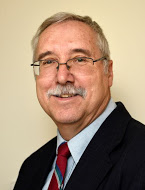[Opinion] Giving credit where credit is due
 Click here to read the original article
Click here to read the original article
![]()
“While ‘apartheid’ can have broader meaning, its use is meant to evoke the situation in pre-1994 South Africa. It is an unfair and inaccurate slander against Israel, calculated to retard rather than advance peace negotiations.”
These important words were published Tuesday in The New York Times by former South African judge Richard Goldstone, who was centrally involved in the transition from the real evil of apartheid in his native country. As a liberal Jew and active Zionist, he has also been a very harsh critic of some Israeli policies.
His carefully considered and strongly written condemnation of the political war against Israel is a significant blow to those who groups and individuals who seek to demonize Israel, and to deny the right of the Jewish nation to sovereign equality.
The apartheid “slander,” to use Goldstone’s term, is central to these campaigns. Essentially, it represents the Durban strategy adopted in 2001 by the NGO Forum of the UN Conference Against Racism. The absurd and immoral analogy is also a key component of the BDS (boycott, divestment, and sanctions) movement. The Durban conference and the BDS movement are not about human rights. Rather, they are aimed at the complete international isolation of Israel by falsely painting Israel as a “racist,” “genocidal,” and “criminal” state.
What makes Goldstone’s statement particularly significant is the fact that this represents a major and wrenching about-face for him. In 2009, Goldstone presided over another UN-orchestrated anti- Israel assault, in the form of a pseudo fact finding mission on the Gaza war. The resulting report was a farce: Goldstone’s committee did its job in pronouncing Israel guilty of deliberate killing of civilians and war crimes, while ignoring thousands of Palestinian rocket attacks – every one a war crime.
As a result of this indictment, Goldstone was embraced by the leaders of the anti-Israel campaigns, including Ken Roth of Human Rights Watch and his counterparts in the NGO community. UN High Commissioner for Human Rights Navi Pillay, who was appointed by upstanding human rights stalwarts such as Ghaddafi’s Libya, Assad’s Syria, Cuba, Pakistan, and China, also touted the report. Dozens of smaller NGOs, including al-Haq, Adalah, and B’Tselem – many of which receive funding from the New Israel Fund (NIF) and European governments – promoted the report and have been spreading this false apartheid analogy.
The most rabid anti-Israel ideologues, people like Naomi Klein and Ali Abunimah, exalted Goldstone as their patron saint, publishing a collection of essays praising the UN report as the ultimate “proof” of Israeli war crimes and apartheid. They are now exposed for their rhetoric that contributes to anti-Jewish hatred and stands in sharp contrast to the moral foundations of universal human rights.
To his credit, Goldstone gradually realized that the allegations that formed the bulk of his report were copied largely from NGO claims, including from Human Rights Watch, and were not credible or clearly invented, and that his name and seal of approval were being abused to wage a very dirty war against Israel. Beginning in September 2010, Goldstone’s campus presentations and other speeches began to reflect a cautious doubt and misgivings on these central issues. This led to his April 2011 op-ed in the Washington Post in which he admitted, “If I had known then what I know now, the Goldstone Report would have been a different document.”
In some respects, Goldstone’s metamorphosis from a central participant in the political assault against Israel’s legitimacy into a front-line defender is reminiscent of the about face made by Robert Bernstein, the founder of Human Rights Watch.
Both are strongly committed to universal human rights, and both eventually realized that many of their former allies in promoting these goals had become chronically infected by an anti-Israel ideology that is entirely inconsistent with these principles. After many years of attempting to fight this disease from the inside, in 2009 Bernstein denounced HRW’s role in the campaigns to turn Israel into a pariah on the pages of the New York Times. He then created a new group called Advancing Human Rights.
The timing of Goldstone’s latest article is also significant, appearing just a few days before the scheduled opening of the so-called Russell Tribunal on Palestine in Cape Town, South Africa. There, with the participation of Archbishop Desmond Tutu, a kangaroo court will begin its inquisition designed to restart the flagging apartheid analogy that is repeated at every BDS and “Israel apartheid week” event.
Goldstone has now confronted Tutu and his other former allies from the real anti-apartheid movement in South Africa who have become leading Israel-haters, denouncing their role in “pernicious and enduring canard,” which is “calculated to retard rather than advance peace negotiations.”
For Goldstone, like anyone else caught in a similar understanding of having committed a major, if unwitting mistake on the world stage, this confrontation with former friends is very difficult.
Some people will continue to criticize Judge Goldstone for the damage caused to the Israelis who were libeled in his UN report on the Gaza war, and for the damage that report caused to universal human rights. Some of this damage is irreversible, despite Goldstone’s subsequent “reconsideration.” But taken together with his denunciation of the Russell Tribunal farce, and linked with Bernstein’s turn-about, as well as other exposés of the moral corruption among influential “human rights” frameworks, Goldstone should be congratulated and embraced for having done the right thing.
The writer is president of NGO Monitor, a Jerusalem-based research institution dedicated to promoting universal human rights and to encouraging civil discussion on the reports and activities of nongovernmental organizations, particularly in the Middle East.
